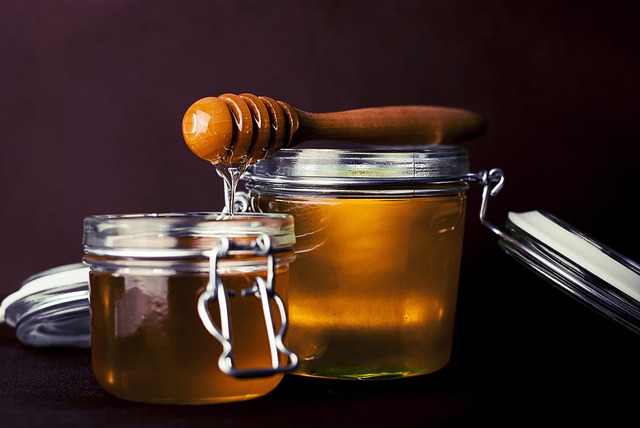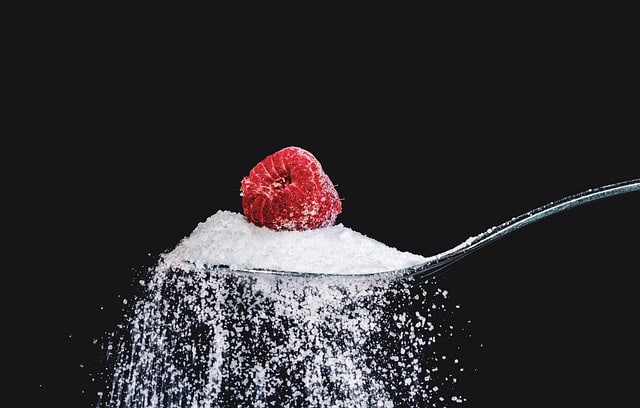-By: Bhavisha Changrani
In recent years, the global health community has become increasingly concerned about the rising consumption of sugar and its impact on public health. With sugar linked to obesity, diabetes, heart disease, and other chronic conditions, many people are seeking alternatives to satisfy their sweet tooth without the harmful effects of excessive sugar intake. Enter sugar substitutes: sweeteners that promise to deliver the taste of sugar without the calories or negative health consequences.
But are these substitutes truly healthier? Or do they come with unintended risks? In this article, we’ll explore the most common sugar alternatives—stevia, monk fruit, and artificial sweeteners—to determine whether they are indeed a better choice or simply a new way to deceive our taste buds.

1. Stevia: The Natural Sweetener
What it is: Stevia is a plant-based sweetener derived from the leaves of the Stevia rebaudiana plant. The sweet compounds in stevia, called steviol glycosides, are up to 300 times sweeter than sugar, yet they contain little to no calories.
Health benefits
Low-calorie and blood sugar friendly: Stevia has become a popular choice for people with diabetes or those trying to lose weight because it does not raise blood glucose levels. In fact, some studies suggest that stevia may help lower blood sugar levels and improve insulin sensitivity.
Dental health:. Stevia, unlike sugar, does not promote tooth decay, making it a beneficial choice for those looking to prevent cavities.
Potential Risks:
Aftertaste: The bitter aftertaste of stevia is often cited as a drawback, leaving an unpleasant flavor for some users.
Gut effects: Although rare, some people report digestive issues like bloating or gas when consuming stevia, especially in large quantities.
Lack of long-term studies: While stevia is considered safe by regulatory bodies like the FDA, long-term studies on its health effects are still limited, particularly regarding its impact on gut microbiota.
Verdict: Stevia is generally considered a safe, natural, and effective sugar substitute. It can be a great choice for those looking to cut calories and manage blood sugar levels, but individuals may want to pay attention to their body’s response, especially in large amounts.

Monk Fruit: The Sweetest Natural Alternative
What it is: Monk fruit, also known as luo han guo, is a small, green fruit native to Southeast Asia. The sweetness comes from mogrosides, natural compounds found in the fruit that are up to 200 times sweeter than sugar but have virtually no calories.
Health benefits
Zero-calorie, blood sugar friendly: Like stevia, monk fruit has a negligible effect on blood sugar, making it a suitable option for diabetics and people on low-carb diets. It’s also calorie-free, which is why it’s commonly used in weight management.
Antioxidant properties: Monk fruit contains antioxidants, which may help reduce inflammation and combat oxidative stress, potentially benefiting overall health.
Potential risks
Cost and availability: Monk fruit extract can be significantly more expensive than other sweeteners, and it can sometimes be harder to find, depending on where you live.
Processing concerns: Some monk fruit products on the market are blended with other ingredients, such as erythritol or dextrose, to balance the taste. These additives can affect the product’s overall health benefits.
Aftertaste: While monk fruit is generally known for having a pleasant sweetness, some users report a mild aftertaste that may be noticeable in large quantities.
Verdict: Monk fruit is a promising, all-natural sweetener with strong health benefits and no known major side effects. It’s a great option for people seeking a calorie-free, blood sugar-friendly alternative, although it can be more expensive and harder to find than other substitutes.
Artificial Sweeteners: The Synthetic Substitutes
What they are: Artificial sweeteners are synthetic sugar substitutes that provide the taste of sugar without the calories. Popular artificial sweeteners include aspartame, sucralose (brand name: Splenda), saccharin, and acesulfame potassium. In terms of sweetness, these sweeteners can surpass sugar by several hundred to thousandfold.
Health benefits
Zero or low-calorie: Artificial sweeteners are appealing to those who want to reduce their calorie intake and manage weight, as they provide the sweetness of sugar without the associated calories.
Safe for diabetics: Many artificial sweeteners do not raise blood sugar levels, making them a suitable option for people with diabetes or insulin resistance.

Potential risks
Health concerns and controversy: Over the years, many artificial sweeteners have been the subject of controversy. For example, aspartame has been linked in some studies to headaches, allergic reactions, and even cancer, although major health organizations like the FDA, WHO, and the American Cancer Society maintain that it is safe when consumed within acceptable limits. However, certain people—particularly those with phenylketonuria (PKU)—should avoid aspartame.
Gut health: Recent research has raised concerns about the impact of artificial sweeteners on gut bacteria. Studies suggest that artificial sweeteners may alter the gut microbiota, potentially affecting digestion, metabolism, and even immune function.
Taste issues: Many people dislike the aftertaste of artificial sweeteners, particularly saccharin and aspartame, which can leave a metallic or bitter flavor in the mouth.
Verdict: Artificial sweeteners are generally regarded as safe by regulatory authorities, but they remain controversial. While they offer clear benefits in terms of calorie reduction and blood sugar control, some studies suggest potential long-term health risks. If you choose to use them, it’s wise to do so in moderation and stay informed about the latest research.
Erythritol: The Sugar Alcohol
What it is: Erythritol is a type of sugar alcohol found naturally in some fruits and fermented products.
Health benefits
Low-calorie: Like other sugar alcohols, erythritol is low in calories, making it a popular choice for weight management.
Blood sugar impact: Erythritol has a negligible effect on blood glucose, making it a good option for diabetics.
Tooth-friendly: Unlike sugar, erythritol does not lead to tooth decay, making it a safer option for dental health.
Potential risks:
Digestive issues: In large amounts, erythritol can cause gastrointestinal discomfort, including bloating, gas, and diarrhea, especially for those sensitive to sugar alcohols.
Processing: While erythritol occurs naturally, most commercially available erythritol is highly processed, raising questions about the overall “naturalness” of the product.
Verdict: Erythritol is a relatively safe and effective sugar substitute for those looking to cut calories or manage blood sugar levels, but like other sugar alcohols, it can cause digestive discomfort in some individuals.

Conclusion: Healthy or Harmful?
When it comes to sugar substitutes, there is no one-size-fits-all answer. While stevia, monk fruit, and erythritol offer natural, low-calorie alternatives that are generally safe for most people, artificial sweeteners still carry a degree of controversy due to potential health risks, especially with long-term use.
Stevia and monk fruit are excellent choices for those seeking a natural, zero-calorie sweetener with minimal health risks. However, they may not always satisfy everyone’s taste preferences.
Artificial sweeteners, while effective at reducing calorie intake, should be used with caution, especially considering concerns about long-term health effects on the gut microbiome and other potential side effects.
Erythritol can be a good option for those who need to reduce sugar intake, but be mindful of digestive discomfort at higher doses.
Ultimately, the best sugar substitute depends on your health goals, dietary needs, and personal preferences. As with any food or ingredient, moderation is key. If in doubt, it’s always wise to consult with a healthcare professional, particularly if you have any underlying health condition













